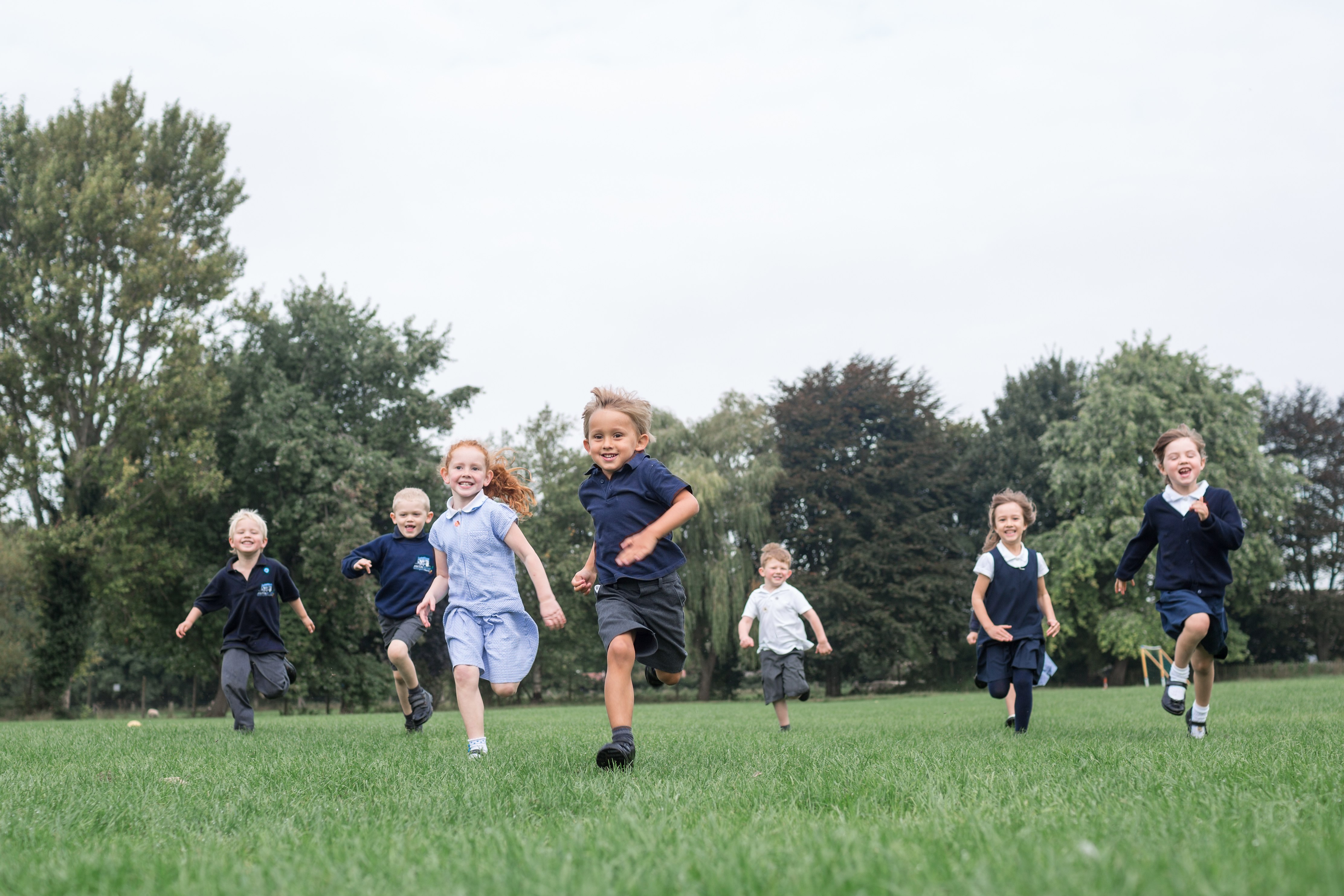The Senior Designated Officers for safeguarding are:
Safeguarding & Child Protection Leader Mrs Samantha Saville Head Teacher

Mrs Samantha Saville
Safeguarding & Child Protection Deputy’s



Ashton Keynes C of E Primary takes safeguarding very seriously and has an extensive range of strategies for keeping children safe. These strategies extend to all who work in or with our school.
The Senior Designated Officers for safeguarding are:
Safeguarding & Child Protection Leader Mrs Samantha Saville Head Teacher

Mrs Samantha Saville
Safeguarding & Child Protection Deputy’s

E-safety lead Miss Sarah Igoe Class Teacher

Mrs Michele Collier-Bromelow Chair of Governors & Safeguarding Governor

Kim Olden PA to Designation Safeguarding Lead

Safeguarding is checked robustly by governors who understand the prominence this must play in the work of the school. As a result, the leadership team has ensured that all safeguarding arrangements are fit for purpose, records are detailed and of high quality and staff know what to do in any instance to protect pupils from harm. OFSTED July 2017
The Headteacher, Deputy Head, Chair of Governors and Vice Chair have completed training in safer recruitment and implement rigorous recruitment processes for all posts connected to the school. Kim Olden is PA the the Designated Safeguarding (Samantha Saville) Lead and ensures we maintain a thorough and up to date single central record of DBS checks and ensures references are vetted and checked for safer recruitment.
Together with other leaders, staff and governors, you are fastidious in protecting pupils and raising the profile of safeguarding through the school’s work. You take every opportunity to remind staff about safeguarding alerts and updates. Effective training and induction is in place so that all staff, governors and volunteers maintain the highest levels of vigilance and awareness. OFSTED July 2017
Use the links at the bottom of this page to find out more about how to report abuse, online safety, radicalisation, well being, child sexual exploitation and female genital mutilation and to find our list of safeguarding links and downloads.
Ashton Keynes C 0f E Primary School has an on going and continuing commitment to safeguarding which includes:
The Multi-Agency Safeguarding Hub (MASH) is a partnership between Wiltshire County Council, children’s social care, education and youth services, Wiltshire NHS health services, Wiltshire Police and the probation service working together to safeguard children and young people. A factsheet can be downloaded from the links and downloads section of this page. We work closely with the MASH team.

Remember – if you are concerned about a child or young person in Wiltshire and want to speak to someone, contact the MASH on 0300 4560108 (8:45a.m.-5p.m. Mon-Thurs) and (8:45a.m.-4p.m.) Friday. Emergency Duty Service 0845 6070888 (5p.m. – 8:45a.m.)and give as much information as you can.
September 2023, the Department for Education published a revised Keeping Children Safe in Education follow link to view – Keeping Children Safe in Education 2024 – statutory guidance for schools and colleges
Safeguarding Procedures for Visiting Ashton Keynes CE Primary School
Protect Yourself from Cyberbullying
Advice to parents and carers on cyberbullying
The changes in the revised statutory guidance relate to:
Prevent Policy Statement
Ashton Keynes CE Primary School is fully committed to safeguarding and promoting the welfare of all its pupils. We are fully aware of our responsibility under the Prevent Duty 2015. As a school we recognise that safeguarding against radicalisation is no different from safeguarding against any other vulnerability. All staff are expected to uphold and promote the fundamental principles of British values, including democracy, the rule of law, individual liberty and mutual respect, and tolerance of those with different faiths and beliefs.
Definition:
Radicalisation is defined as the act or process of making a person more radical or favouring of extreme or fundamental changes in political, economic or social conditions, institutions or habits of the mind. Extremism is defined as the holding of extreme political or religious views.
Aims and Principles
The main aims of this policy statement are to ensure that as part of our culture of safeguarding, all staff are fully committed to being vigilant about radicalisation; that they overcome professional disbelief that such issues will not happen here and ensure that we work alongside other professional bodies and agencies to ensure that our pupils are safe from harm.
The principle objectives are that:
Procedure for Referrals
Although serious incidents involving radicalisation have not occurred at Ashton Keyes CE Primary School to date, it is important for us to be constantly vigilant and remain fully informed about the issues which affect the region in which we teach. Staff are reminded to suspend any professional disbelief that instances of radicalisation ‘could not happen here’ and to refer any concerns through the appropriate channels (currently via the Designated Safeguarding Lead, Mrs Saville or the 3 further Deputy Designated Safeguarding Leads).
We believe that it is possible to intervene to protect people who are vulnerable. Early intervention is vital and staff must be aware of the established processes for front line professionals to refer concerns about individuals and/or groups who may be vulnerable. We must have the confidence to challenge, the confidence to intervene and ensure that we have strong safeguarding practices based on the most up-to-date guidance, training and best practice.
The DSL (Designated Lead for Child Protection) will deal swiftly with any referrals made by staff or with concerns reported by staff. Our culture of challenge and prevention will ensure that acts of discrimination are reported swiftly, recorded and quickly acted upon.
The DSL will discuss the most appropriate course of action on a case-by-case basis and will decide when a referral to external agencies is needed.
If a member of the school community, a child, a member of staff or a member of the school community raises a concern that relates to the Prevent Duty e.g. a child at risk of radicalisation, or exhibiting extremist the school will take this matter seriously and will follow Child Protection procedures.
Within the Shine Curriculum
Our Shine curriculum promotes respect, tolerance and diversity. We are committed to ensuring that our pupils are offered a broad and balanced curriculum that aims to prepare them for life in modern Britain. Promoting pupil happiness, wellbeing, sense of security, equalities, building self-esteem and community cohesion are ongoing and integral as wellbeing is a golden thread throughout our Shine Curriculum. Through developing pupil voice strongly across the Shine Curriculum, children look out for one another and notice a need and speak up for themselves and one another.
Children are encouraged to share their views and recognise that they are entitled to have their own different beliefs which should not be used to influence others. Our RSHE &PSHE (Relationships, Personal, Social and Health Education), Citizenship and SMSC (Spiritual, Moral, Social and Cultural) provision is embedded across the curriculum, and underpins the ethos of the school. As part of our Shine curriculum pupils build resilience. Our core Christian values including that of trust include showing respect to one another and being honest. Along with this is our drive to empower children to have a voice and be courageous advocates, ensuring they can stand up for what is right and share any concerns, no matter how small with trusted adults.
Teaching the schools’ core Christian values alongside the fundamental British values:
supports quality teaching and learning, whilst making a positive contribution to the development of a fair, just and civil society. Children are regularly taught about how to stay safe when using the Internet in school and at home and they are encouraged to recognise that people are not always who they say they are online. They are taught to seek adult help if they are upset or concerned about anything they read or see on the Internet and via gaming. They are also taught about understanding peer pressure through our PSHE curriculum in upper KS2.
Role of the Governing Body
The Governing Body of our school will undertake appropriate training to ensure that they are clear about their role and the parameters of their responsibilities as Governors, including their statutory safeguarding duties. The Governing Body will support the ethos and values of our school and will support the school in tackling extremism and radicalisation. In line with the provisions set out in the DfE guidance ‘Keeping Children Safe in Education 2018’ the governing body will challenge the school’s senior leadership team on the delivery of this policy and monitor its effectiveness.
Safer Recruitment
The arrangements for recruiting all staff, permanent and volunteers, to our school will follow safer recruitment best practice in education settings, including, but not limited to, ensuring that DBS checks are always made at the appropriate level, that references are always received and checked and calls made to verify the sender, that we complete and maintain a thoroughly compliant single central record of such vetting checks. Members of the Senior Leadership and safeguarding team and Governors will be safer recruitment trained. We will apply safer recruitment best practice principles and sound employment practice in general and in doing so will deny opportunities for inappropriate recruitment or advancement. We will be alert to the possibility that persons may seek to gain positions within our school so as to unduly influence our schools’ character and ethos. We are aware that such persons seek to limit the opportunities for our pupils thereby rendering them vulnerable to extremist views and radicalisation as a consequence. Therefore, by adhering to safer recruitment best practice techniques and by ensuring that there is an ongoing culture of vigilance within our school and our staff team we will minimise the opportunities for extremist views to prevail.
Staff Training
Through regular training in school, we will ensure that our staff are fully aware of the threats, risks and vulnerabilities that are linked to radicalisation; are aware of the process of radicalisation and how this might be identified early on. We will also ensure that a culture of ‘It will never happen here’ doesn’t exist. Any concerns will be reported and swiftly acted upon in line with our safeguarding procedures.
Links to other policies:
Our policy also draws upon guidance from:
DfE Guidance “Keeping Children Safe in Education, 2023 (training updated every year)
Training on prevent duty and prevent duty annual refresher training.
Procedures for referrals
Any colleague with concerns will speak to the Designated Safeguarding Lead (Samantha Saville, Headteacher) or one of the three Deputy Designated Safeguarding Leads. The concern will be logged and a timeline started. Relevant outside agencies will be consulted.
Useful Websites for more information:
Prevent Duty Guidance: https://www.gov.uk/government/publications/prevent-duty-guidance
Channel Guidance: https://www.gov.uk/government/publications/channel-guidance
Online safety – Parental Support
Childnet offers a toolkit to support parents and carers of children of any age to start discussions about their online life, and to find out where to get more help and support
Government advice about protecting children from specific online harms such as child sexual abuse, sexting, and cyberbullying
Internet Matters provide age-specific online safety checklists, guides on how to set parental controls, and practical tips to help children get the most out of their digital world
London Grid for Learning provides support for parents and carers to keep their children safe online, including tips to keep primary aged children safe online
National Crime Agency/CEOP Thinkuknow provides support for parents and carers to keep their children safe online
Net-aware provides support for parents and carers from the NSPCC and O2, including a guide to social networks, apps and games
Parentzone provides help for parents and carers on how to keep their children safe online
‘Clever Never Goes’ (replacing stranger danger)
Our school runs a child safety initiative called ‘Clever Never Goes’ as part of our safeguarding programme.
The ‘Clever Never Goes’ programme has been developed to replace the out-dated ‘stranger danger’ approach. Research shows that teaching children simply to avoid strangers fails to keep them safe. Strangers are often more likely to help a child than to harm them. Conversely, it can often be people known to children that pose the greatest threat.
‘Clever Never Goes’ moves the focus away from strangers and instead teaches children to recognise when someone (whether they are known to the child or not) is trying to persuade them to go with them. The programme is designed to be fun and positive, whilst at the same time delivering a serious message and giving children practical safety skills and confidence to engage with the outside world.
In addition to the schools lesson parents can help their child to understand the Clever Never Goes message. Parents can download (free of charge) a Clever Never Goes home pack at the website www.clevernevergoes.org/parents. The home pack contains some great ideas for how to approach this topic with your children as well as games and activities. On the website, you can also see a series of cartoon sketches which are a good way of reinforcing the Clever Never Goes message and checking that your child has understand the key Clever Never Goes message. Please do make use of these resources.
Here is a useful parent/carer leaflet: